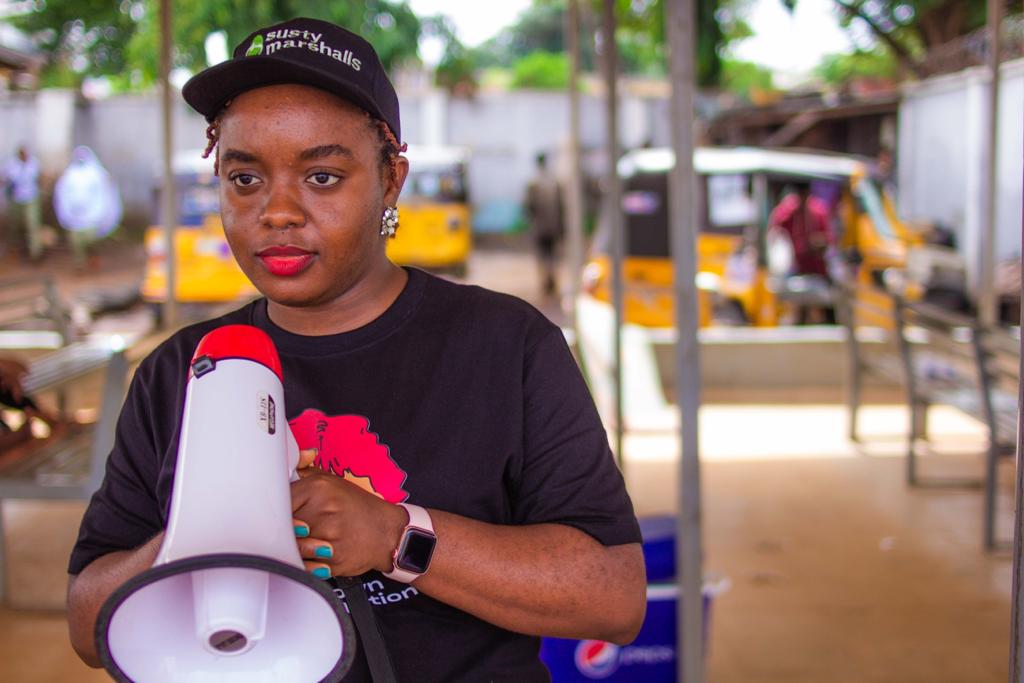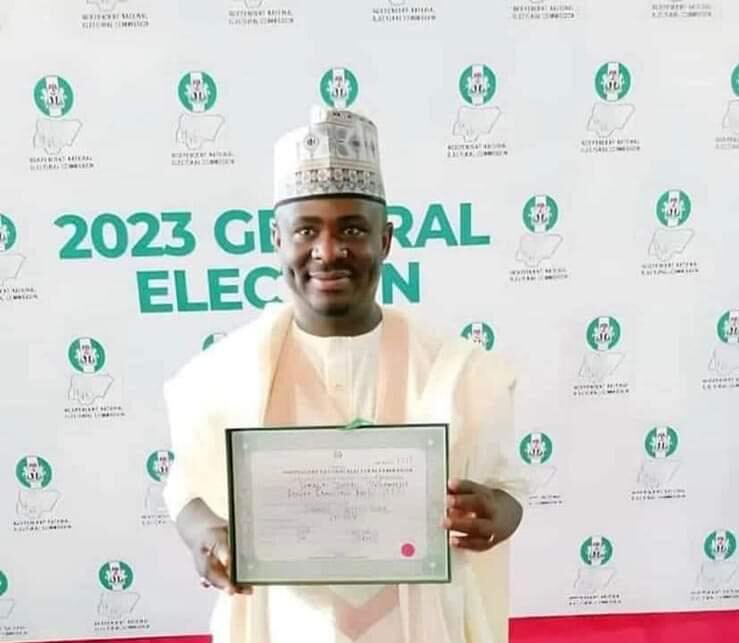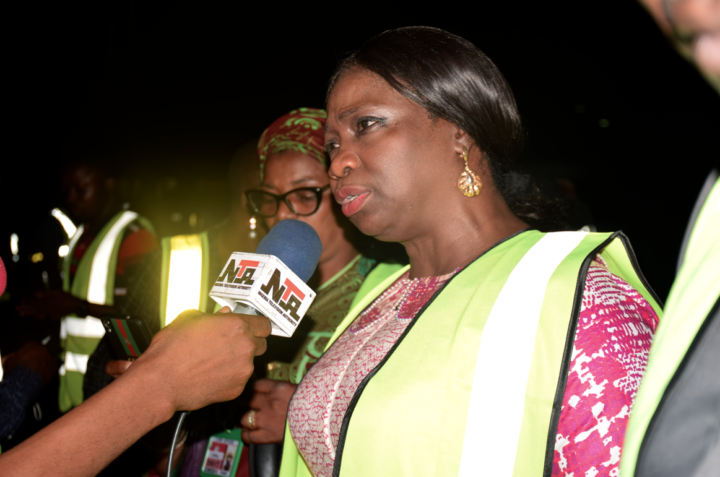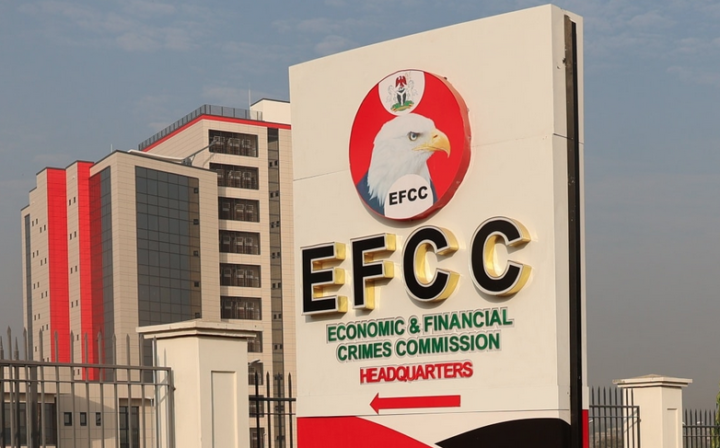Climate change and mental health are two concepts that still elude many Nigerians. It is as if these ideas are too exhausting to comprehend, and even more bewildering to imagine that one can affect the other so profoundly. But it does and Jennifer Uchendu, a 30-year-old environmentalist, can prove it.
Throughout her career, Uchendu has experienced firsthand the despair and weariness that come with trying to shift the climate narrative. But she is not giving up. She is determined to uncover ways to prevent eco-anxiety from becoming a silent epidemic, no matter how deep she has to dig or how daunting the task may seem.
Her motivation is her experience. After a series of setbacks and negative events in 2019, Uchendu said she almost called her climate advocacy quits. Although SustyVibes, a sustainability-focused organisation she founded, started to gain a lot of traction, she said she still felt underwhelmed with the movement.
The United Nations (UN) climate change conference, widely known as the Conference of the Parties (COP), did little to prove that. Perhaps, Uchendu had no reason to feel the way she felt. Eye-service actions coloured the gathering and the promises of world leaders sounded empty in many rooms she found herself at the conference, she told TheCable
Advertisement
“When I went to COP, I came face to face with how leaders weren’t serious as opposed to what I thought it would be. There were a lot of debates on whether or not to take action and a lot of tokenism for young people who were trying to put their mouths in the conversation,” Uchendu said.
“For me, that was the peak because being there as a young climate activist, you aspire to be in those rooms and it felt to me that as people go up the ladder, the more detached they become from reality. That bothered me a lot.”
Uchendu said she almost switched careers. The idea of focusing on a “useless toil” was no longer appealing. But along the lines, she would come to know that a new reality would be founded from her inner turmoil.
Advertisement
For the environmentalist, it was an opening “into this new world of climate change and mental health intersection”. But she needed to dig deeper and find a balance to stop herself from being drowned by the voices in her head.
THE CLIMATE DENIAL
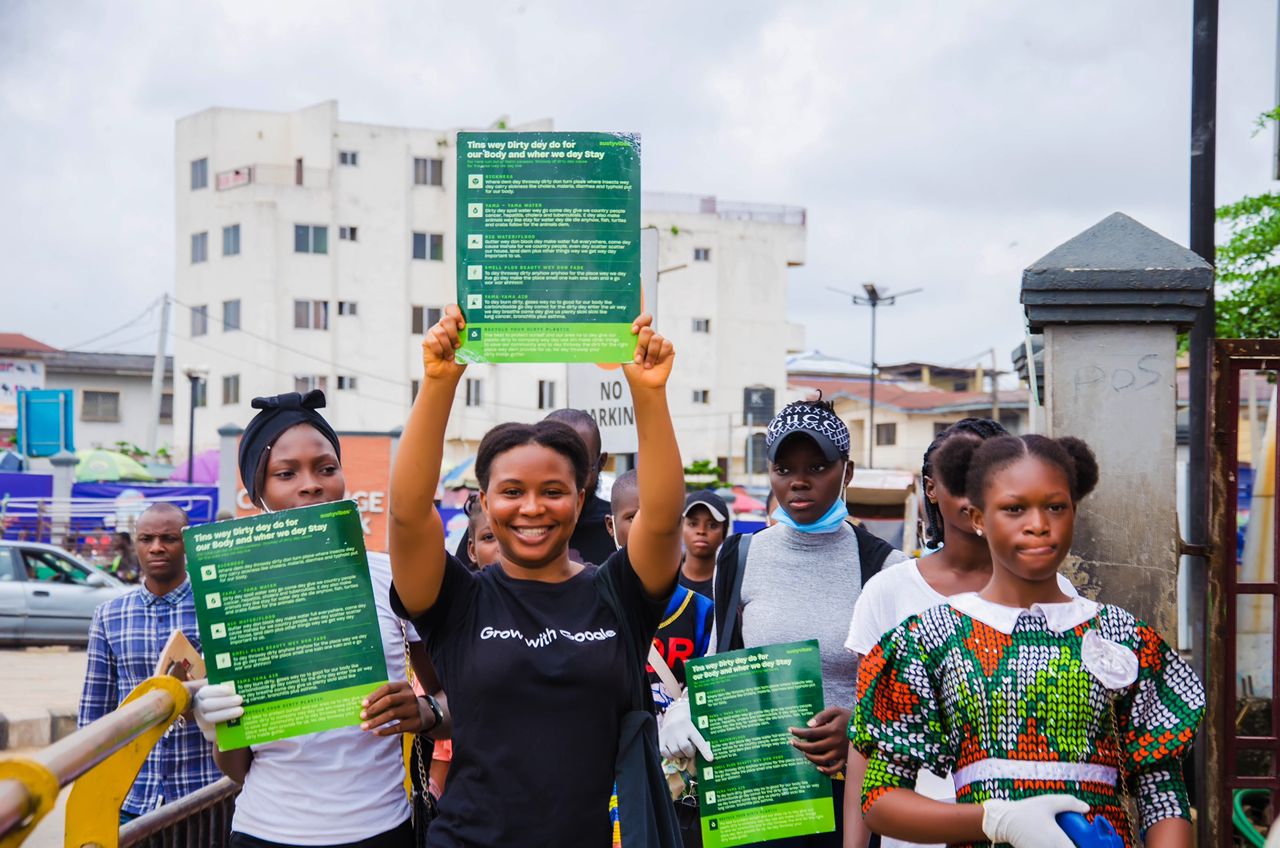
According to Uchendu, the need to uncover the impact of climate change on mental health is most important now because “we are in a middle of a climate crisis”. The continued climate denial is, however, perplexing. Supporters of this notion reject the idea that climate change is largely caused by human activity or constitutes a significant threat to human welfare and civilisation.
Advertisement
Although the environmentalist think that only a few people believe in this idea because they are genuinely ignorant, she told TheCable it is only an emotional response for the larger percentage.
“We’re sort of experiencing a climate crisis and all of those things they used to warn us about are here. You see a lot of impact and acute intensity in a lot of these disasters, so you just have to face it. Climate denial is kind of stale because you’re literally seeing the impacts every other day. I’m worried about it,” she said.
“Some people just don’t know, they’ve never had a conversation about the weather changing over a period of time, some people know what climate change is but they don’t call it climate change, they probably understand it in their own way. And there are people who have absolutely refused to believe in it no matter what happens and they stand by it. That is also an emotional response because climate change is very big and overwhelming and complex, it’s often referred to as a wicked problem.
“It’s difficult to wrap your head around it because when you discover the enormity of the problem, you start to think of where to start from. And for some people, being numb or being in denial is their psychological response to problems. They feel like if they don’t know or talk about it, then maybe it’s not there. We know that’s not the reality but that’s their response.
Advertisement
“For some other people we see they’re extremists, they call them climate terrorists who think there are many people in the world taking up too many resources, and so they think to have a mass shooting to save the world.
“Climate denial is an emotional response and so when you see it in that light, you think education would help, and for some people you think the kind of work we do at SustyVibes which is making these kinds of conversations actionable and relatable, would work but it just won’t help and you just have to move on to who you can help and who is ready to receive it. It’s all about getting people to make the right decisions and building a climate-smart generation.”
Advertisement
She insisted that some of the people who are intentionally ignorant about climate change are in government and other positions of power. Uchendu said they are the main problem for climate advocates.
ALWAYS BEEN FATED TO PROTECT THE ENVIRONMENT
Advertisement
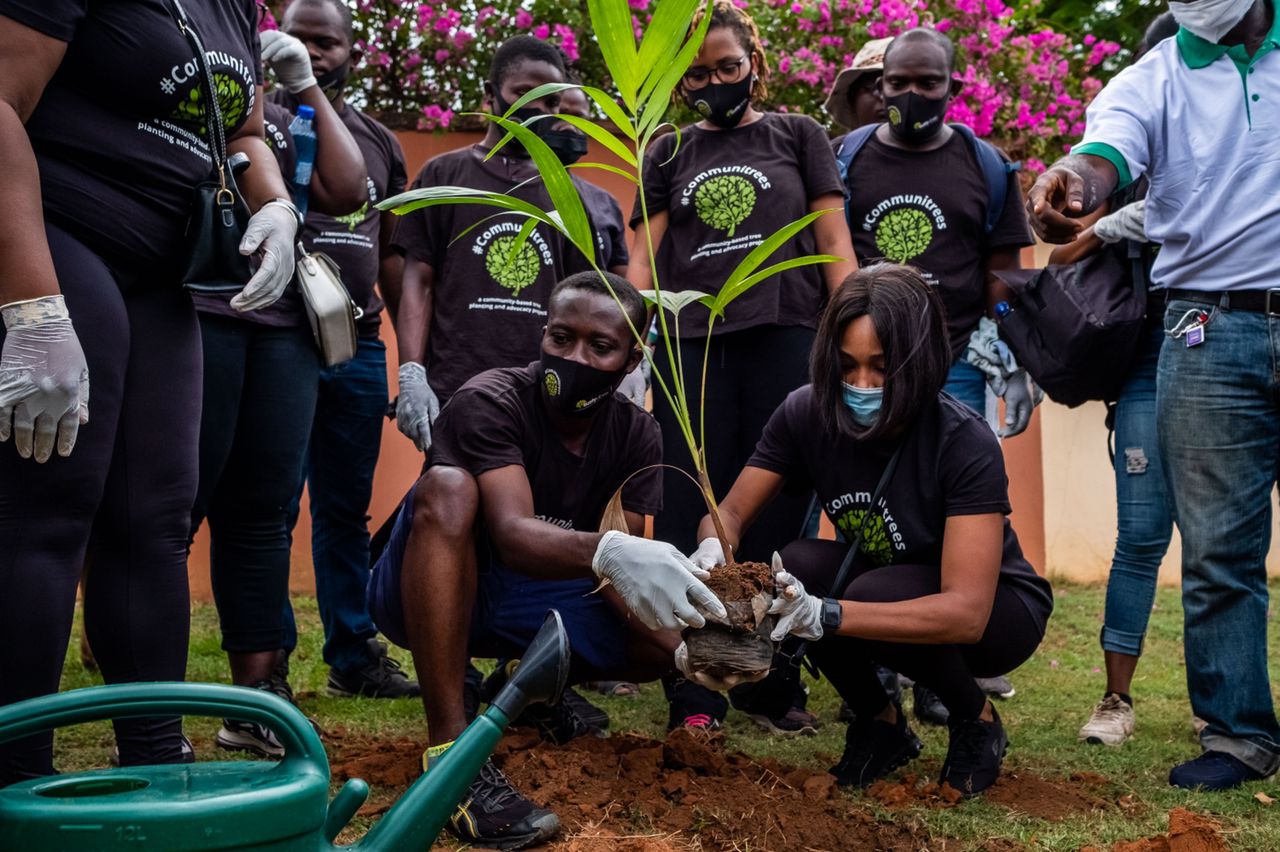
Uchendu had a passion that burned within her soul — to help women in need. Her initial dream of becoming a gynecologist may not have come to fruition, but that didn’t stop her from pursuing her calling in life. Today, the 30-year-old identifies as an eco-feminist whose journey into climate advocacy came by a twist of fate.
In 2007, Uchendu gained admission to study biochemistry at Covenant University. She recalled that she hated it because it was too theoretical but the course would catapult her into the sustainability space.
Advertisement
“In my third year, I started to learn about bio-fuels and I became fascinated. For me, it was like ‘you mean there are things in nature that can power machines, there’s solar? there’s renewable energy?’ So it is safe to say my journey into the sustainability sector started in the energy space,” she told TheCable excitedly.
After she graduated from Covenant University, the eco-feminist interned at the ministry of energy and mineral resources in Lagos. She recalled that she was labelled a “fraud” or a possible “spy”. The ministry officials simply could not understand why a right-thinking young person would “feign” interest in renewable energy. But Uchendu was different and she proved it. She would later work for a year learning the ropes in the sector.
The following year, 2012, the environmentalist left for her National Youth Service Corps (NYSC) with Unilever. Research and development was not the department she was hoping for but luck and opportunity presented themselves. At the time, Unilever was one of the companies pushing sustainability on a global scale — a perfect stepping stone for a bright-eyed climate enthusiast.
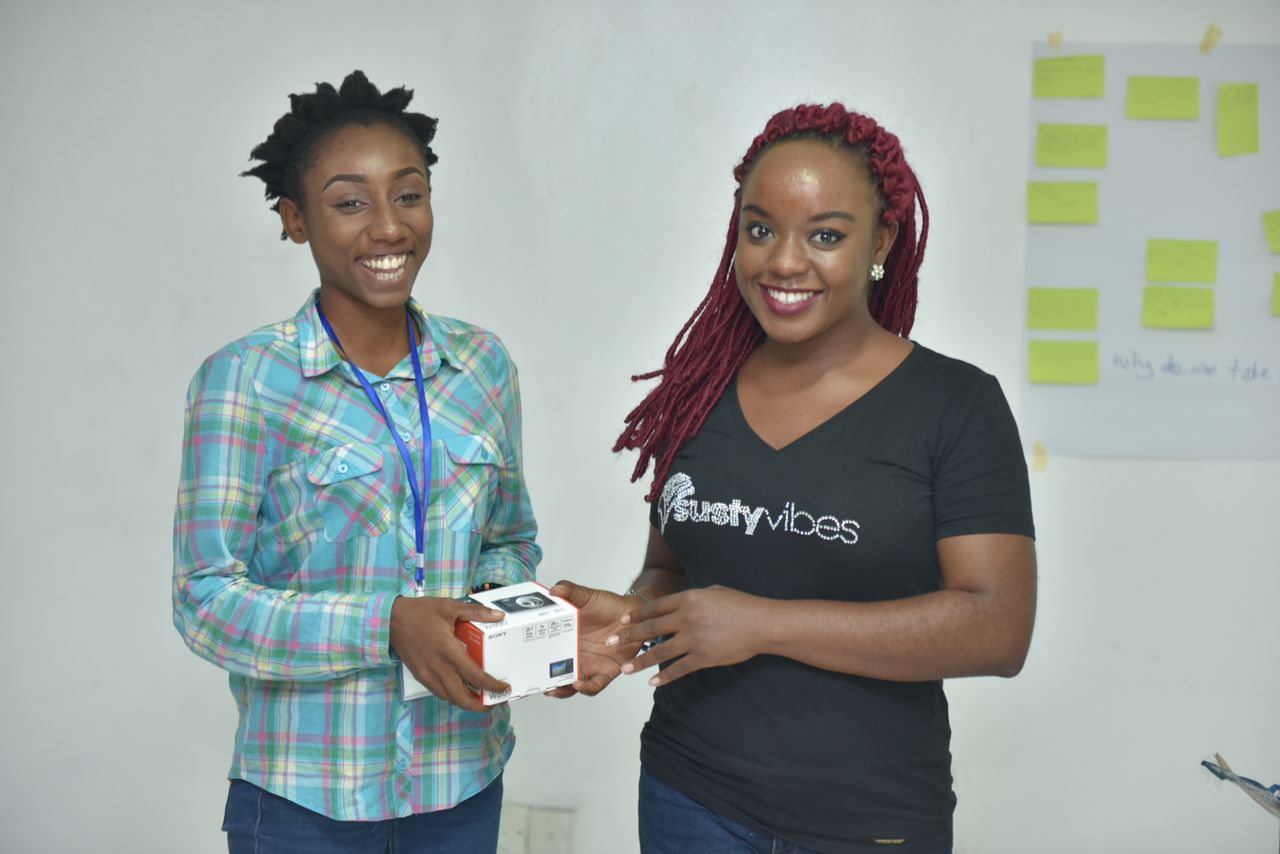
“Being there was just very coincidental. It was amazing. My eyes would pop at the mention of anything sustainability. I remember they had brought up this sustainable procurement software, I didn’t need to but I went for the training just to be part of it,” she recalled.
Getting a job in the sustainability sector afterward was difficult. A lot of Nigerian organisations had no care, and still do not, for the concept of climate change. Uchendu told TheCable she would hunt down and attend free trainings and network with all the people she met. But none of her efforts were yielding any fruits.
“My parents would look at me and say they spent so much money for me to go to Covenant and get a proper job not all this sustainability work. At some point, I had to cave in and get a job as a customer service representative at Jumia,” she said.
At Jumia, although she worked in the communications space, she was determined to prove that she had more to offer. Pitching a sustainability-based project bordering on green fashion, the young environmentalist quickly gained the attention of her superiors. Although it was never executed, she said it gave her a sense of accomplishment.
After working for a while, an opportunity for a master’s degree came. But life had other plans.
“I quit my job at Jumia to go to school but my visa was turned down,” she laughed dryly.
“When I wanted to go back to Jumia, they had already replaced me. I had made a mistake and it was very terrible. So, I decided to put in the research skills I had gathered, called up a former colleague at Jumia for some support, and, boom, I started a blog.
“What I’m saying is that SustyVibes just started out as a blog and then I started writing actively. In fact, the very first logo which is now our emblem was a woman on a tree. It took a while, but then, it started to pick up. We had a few volunteers and here we are.
“We started going to schools to teach, our community kept growing. It wasn’t the plan but SustyVibes happened. As the community grew, more professionals joined us and it gave more credibility to my work.”
REFRAMING CLIMATE ACTION TO INTEREST YOUNG PEOPLE
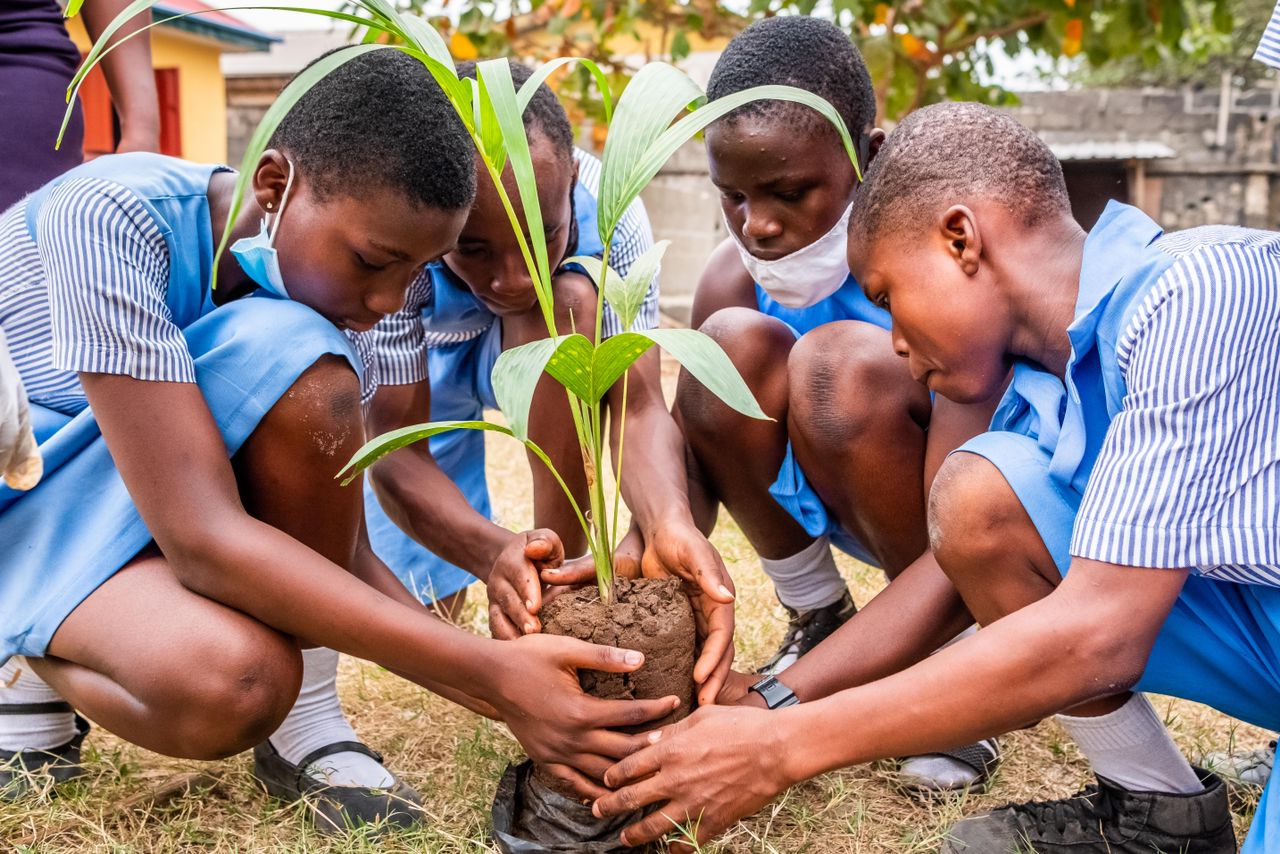
As a young person, Uchendu said she is aware of the increasing attention on mental health; but for young climate professionals, establishing the link is largely a new concept.
To address the psychological gap, SustyVibes, through its eco-anxiety project, is focused on carrying out interventions for African youths who are almost giving up the desire to take climate action.
“I want to support young people who feel this way, particularly Africans, and just looking at how do we start to rethink climate adaptation as it relates to our own psychological well-being,” she said.
“We talk about our work as climate activists and we say we want to change people’s minds, so that means there’s a lot of mind shifting, a lot of work has to happen in our minds and if they’re not in the right place, then we’re just playing around and not scratching the surface. So what does a mindset change mean in relation to how we feel about the environment?
“We have an offshoot project called the ‘Eco-anxiety Africa project’ where we’re doing a lot of research around this, doing a lot of interventions, trying to explore what this means for us in Africa. It’s a super niche and not a lot of people are looking into this and I’m happy we’re taking a step in trying to figure out what this is.
“SustyVibes turns seven in April this year. Last year, I was excited at the fact that we could sub-grant $500 to volunteers to carry out sustainability projects. Never in my wildest dreams would I think that would be possible.”
With the benefit of hindsight, the environmentalist said she is grateful to have started her blog and not giving up. Asides from the opportunity to lead an organisation, Uchendu said the pros are the impact her work has had on young people. But most importantly, it’s the communal growth and the friendships formed that she is most grateful for.
“Those are things money can’t buy”, the environmentalist said with a smile.
To commemorate Earth Day, Uchendu opined that it is a shared responsibility to protect the planet.
According to the environmentalist, the benefits would be positively impacting on our health.
“Everyday that we breathe, eat, and exist on mother earth is earth day. Today is extra special because it’s been set aside as a reminder to us that every day is in fact earth day,” she said.
“As earthlings, we owe it ourselves and future to protect the environment and this means making daily choices that are not harmful to the earth.
“Protecting the environment is in line with protecting our health. Today and always, we are reminded to do better everyday.”
Add a comment
